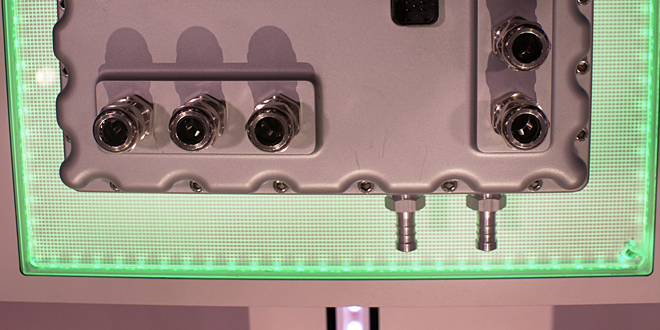President Obama has announced the selection of a consortium of businesses and universities to lead a manufacturing innovation institute for next-generation power electronics. Last May, the President committed $200 million in federal funding to three new regional hubs, designed to bridge the gap between applied research and product development, and launched a competition to select the participants. This week’s announcement marks the formation of the first of those institutes.
The Next Generation Power Electronics Institute is focused on making wide bandgap (WBG) semiconductor technologies cost-competitive with current silicon-based power electronics within the next five years. Compared to silicon-based technologies, WBG semiconductors can operate at higher temperatures, and have greater durability at higher voltages and frequencies, allowing them to achieve higher performance while using less electricity.
WBG semiconductors can eliminate up to 90% of the power losses that occur during AC-to-DC and DC-to-AC electricity conversion, and they can handle voltages more than 10 times higher than silicon-based devices. Applied in an EV, WBG materials could cut electricity losses by 66% during battery recharging.
The winning team, led by North Carolina State University, brings together a consortium of 18 companies and 7 universities and labs. The institute will provide shared facilities, equipment, and testing and modeling capabilities to companies across the power electronics supply chain, particularly small and medium-size manufacturers, to help invent, design and manufacture new semiconductor chips and devices.
Source: The White House via Green Car Congress



















































































